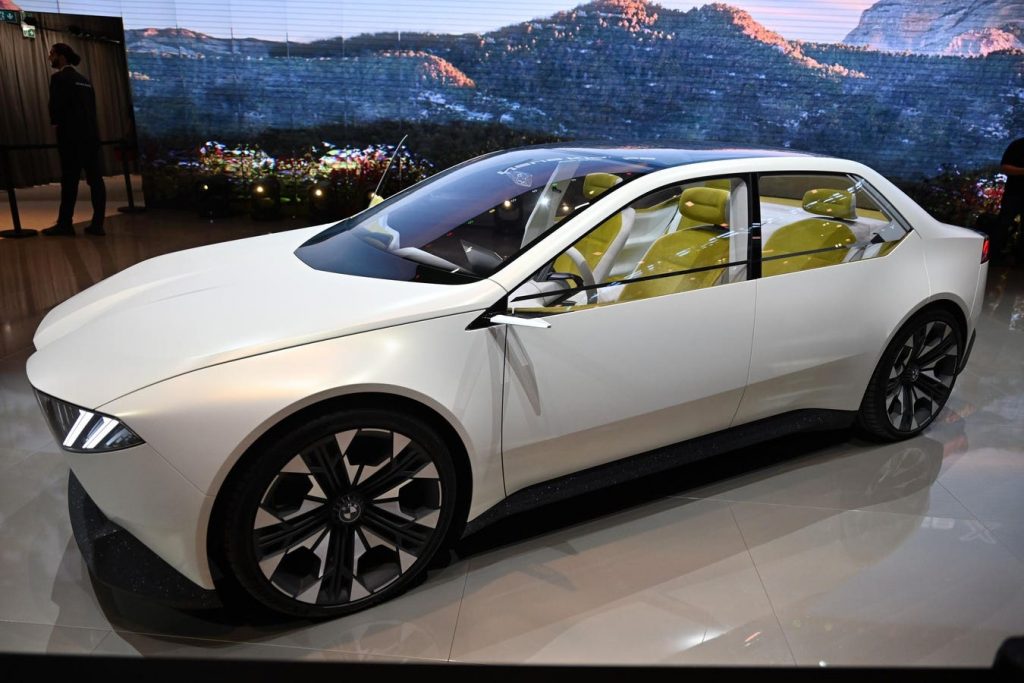Electric vehicle sales in Europe will shake off their lethargy in 2025 and resume strong upward momentum.
That will keep alive the short-term hopes of the EV lobby, but the push for an overwhelming 80% market share demanded by the EU by 2030 look delusional, doomed by high prices and the failure of the industry to design and make mass-market vehicles.
The provisional knowledge of Schmidt Automotive Research shows that sales of electric cars in Western Europe last year fell to 1. 9 million and a market percentage of 16. 6%, but this year it will occur at 2. 7 million (22. 2%).
EV Volumes said it expects to return to expansion this year in Europe as a whole.
“This is thank you to the deployment of new electric automobiles, decrease costs and the implementation of more ambitious CO2 emission goals (EU). Electric automobiles are expected to gain a 24. 7% share, as (sales) through 25. 2%,” EV Volumes said in an article published through J. D. Power’s Autovista24.
Matt Schmidt, by Schmidt Automotive Research, hopes that Western Europe sales will succeed at 7. 8 million up to 2030 and a market percentage of 57% (Western Europe includes all primary markets such as Germany, Great Britain, France, Italy and Italy Spain). This is less than the forecast through EV volumes of a percentage of 61. 6% in 2030 for Europe as a whole. The others are in the maximum appearance of other predictions for all of Europe.
French automotive consultancy Inovev sees an EV market share of 40% at most by 2030 in Europe.
Investment researcher Jefferies cut more than two million sales from its 2030 forecast a couple of months ago. The 2030 forecast now stands at 4.7 million for a market share of 35%, down from the previous 50%, while its 50% expectation for 2035 is half of the European Union‘s mandate.
Professor Stefan Bratzel, director of the German Automobile Control Center, said that MarketPlacePlace’s market share is between 40 and 50% in 2030 due to the lack of mass market electric market vehicles.
“I would say that (the EU’s mandated target, effectively close to an 80% market share) will not be achieved by 2030. It would be a big challenge to reach 50% but there is a need for affordable cars in lower segments,” Bratzel said in an interview.
Schmidt said 2024 will be the last year of stagnation and that this year’s sales will pass through new products.
“Key smaller and semi-affordable protagonists, such as Renaults’ R5, the Dacia Spring refresh, Stellantis’s Citroen eC3 and BMW’s first Neue Klasse-based models will begin entering the stage. Why? To contribute to achieving tougher EU CO2 rules,” Schmidt said in a report.
In 2025, the EU’s CO2 regime sets an upper bar on the road to achieving new car sales that add one hundred percent to EVs by 2035.
Bernstein Research wondered if the deceleration in electric car sales in structural or temporal Europe.
“(weak EV sales) left many of us questioning the longer-term outlook for EV demand, the feasibility of the EU’s 2035 100% zero emission sales targets, and the strategies of some (manufacturers) in achieving these. Is this a temporary impact triggered by policy changes that can still be reversed?” Bernstein said in a report.
Bernstein now expects electric cars to represent 51% of sales of electric vehicles until 2030. That compares to their 67% prognosis.
France’s innovation has also said that seriously electric cars will have to achieve these objectives. Innovev suggests dividing the electric vehicle market, forcing the premium sector that they succeed in the objectives, while ICE reasonable cars would be legal. Regulations can also be others for countries, poor nations are legal for ice cars for longer, while the tastes of Germany and France take the voltage of electric cars. Large car brands in Germany, France, Italy and Cheche need EU to give up fines due to lack of EU 2025 emissions.
The CEO of Renault, Luca de Meo (L) and the CEO of the Renault brand, Fabrice Cambolive, poses with Renault R5 technology. Array . . [+] (Photo by Fabrice Coffrini / AFP Getty Images)
German Chancellor Olaf Scholz, facing a general election next month, said he made no sense of amended transgressors. The money would be more spent through car brands to produce more and more vehicles.
European Commission President Ursula von der Leyen introduced a “structured dialogue” with the automotive sector to discuss the amendment of the CO2 regime. This will be discussed at an EU summit in March. The industry expects the long-term facets of the plan to be watered down. The green teams are in a position to protest if this happens.
Reuters reported on Tuesday that automakers promoting in Europe facing fines are teaming up to buy carbon credits from Tesla and other major EV makers. Stellantis, Toyota, Ford, Mazda and Subaru are all making plans to buy Tesla credits. Mercedes and others are credits from Geely’s subsidiaries of China Volvo and Polestar, Reuters reported, filing filings with the EU.
European automakers can face fines of up to €15 billion for lack of targets, according to the European Automobile Manufacturers’ Association.
A community. Many voices. Create a lazy account to pry your thoughts.
Our network is about connecting other people through open and considered conversations. We need our readers to prove their reviews and exchange concepts and made in a space.
To do this, follow the publication regulations the situations of use of our site. We have summarized some of those key regulations below. In other words, keep it civil.
Your message will be rejected if we realize that it turns out to contain:
The user accounts will block if we realize or that users are compromised:
So how can you be a difficult user?
Thanks for reading our community guidelines. Please read the full list of posting rules found in our site’s Terms of Service.

